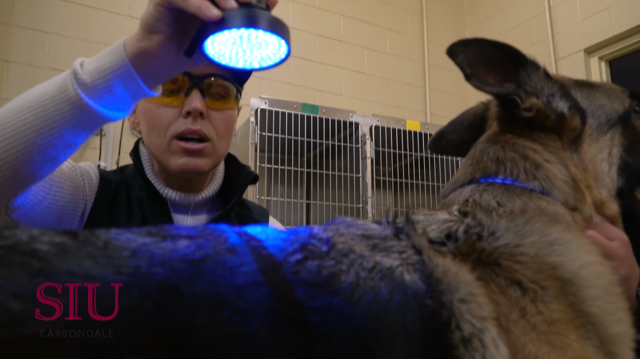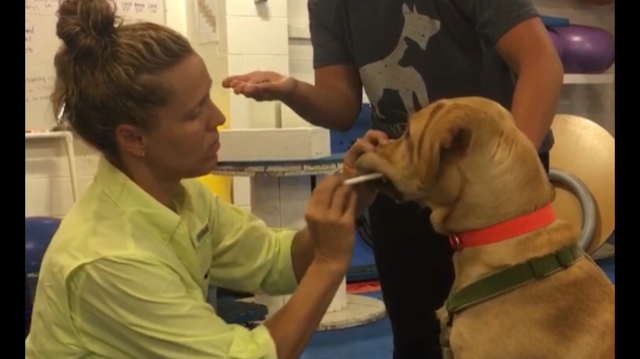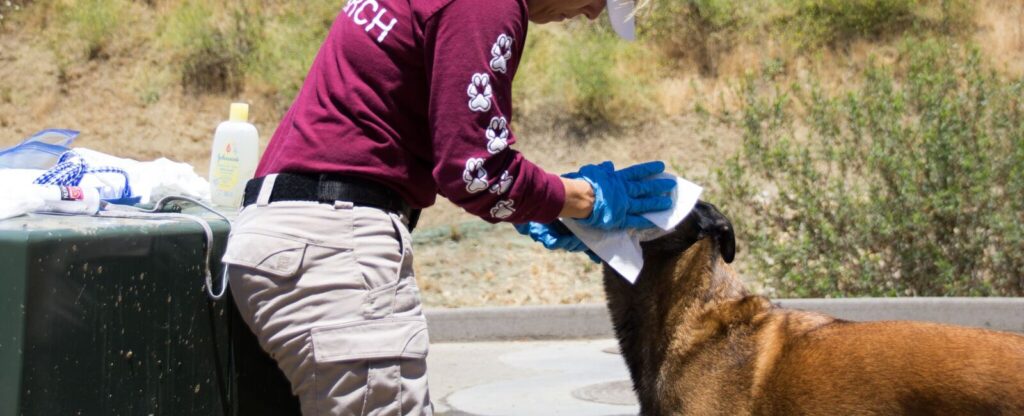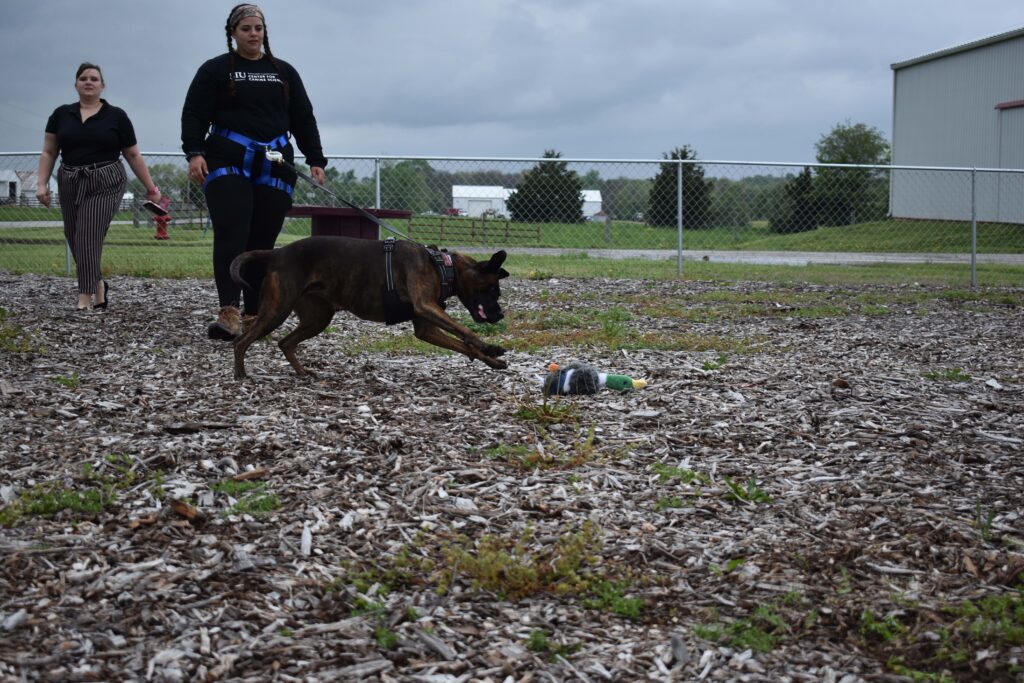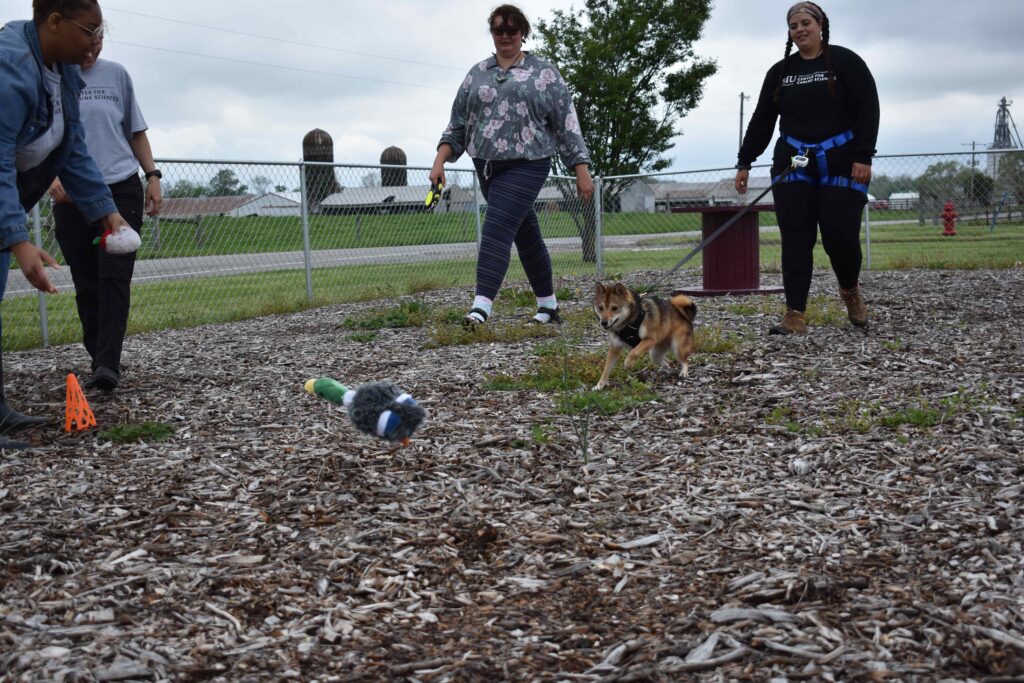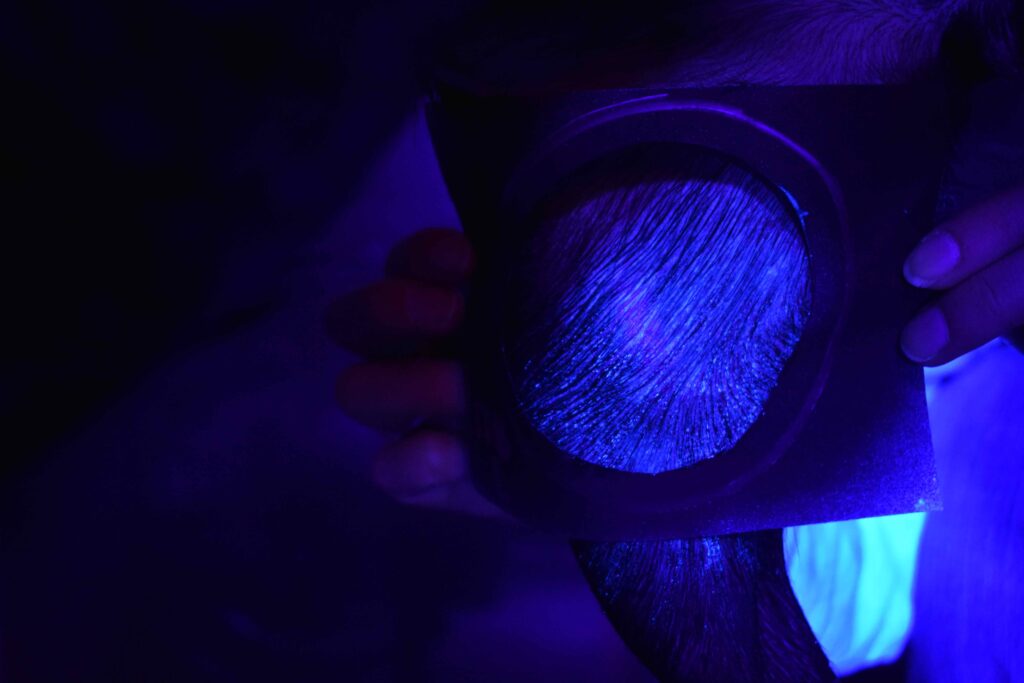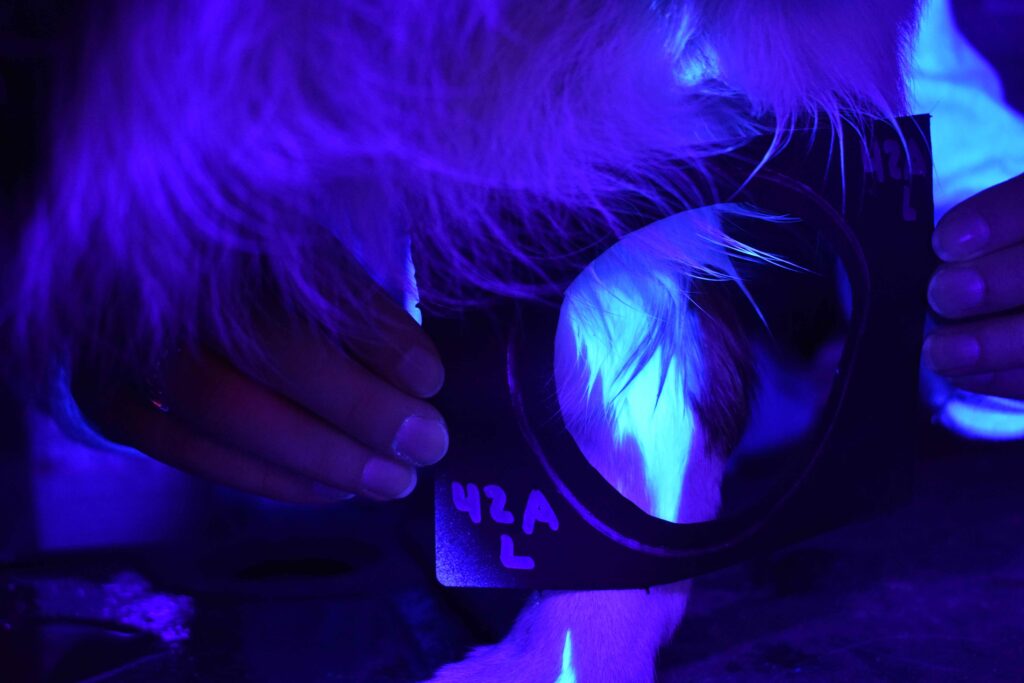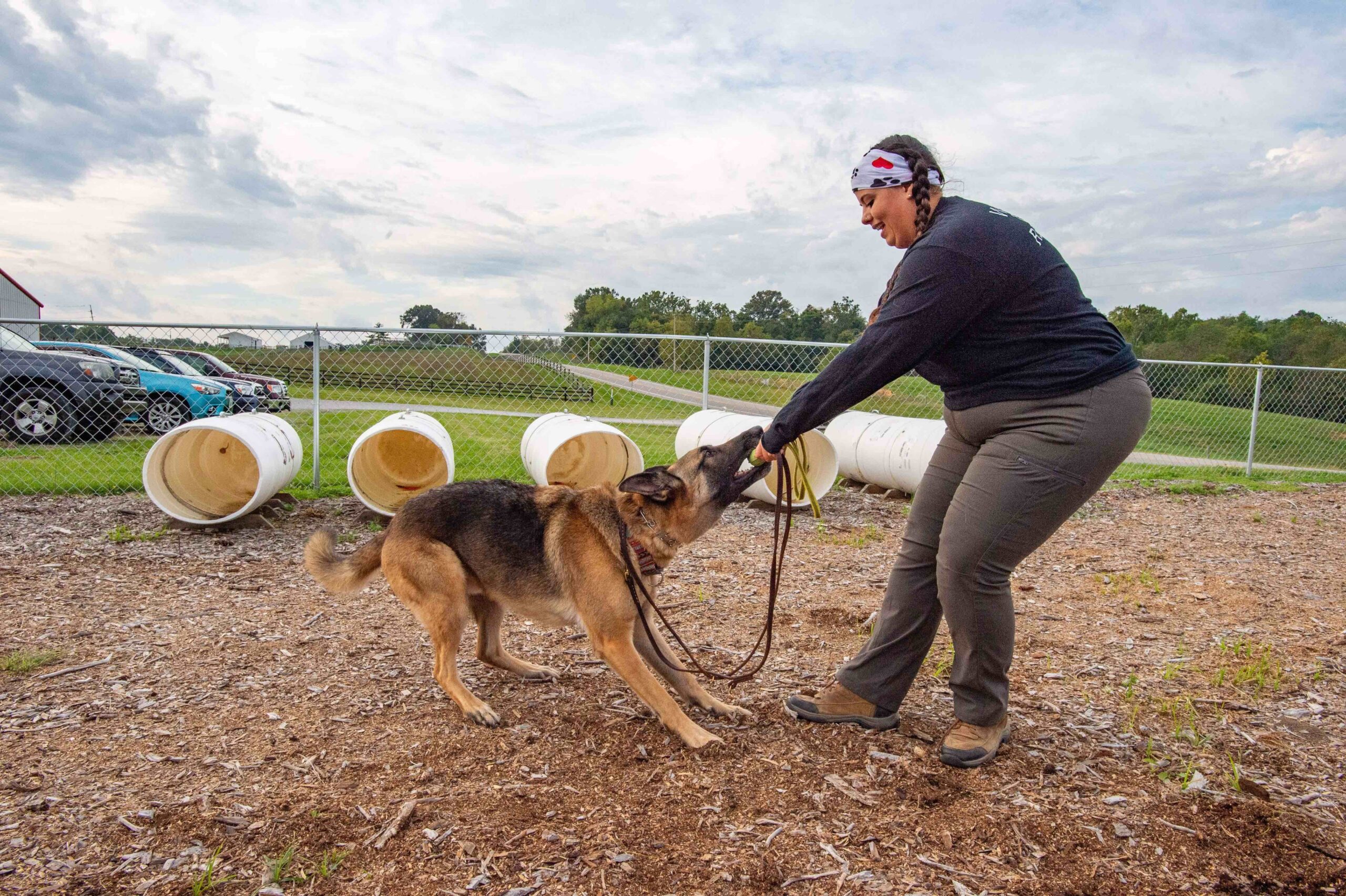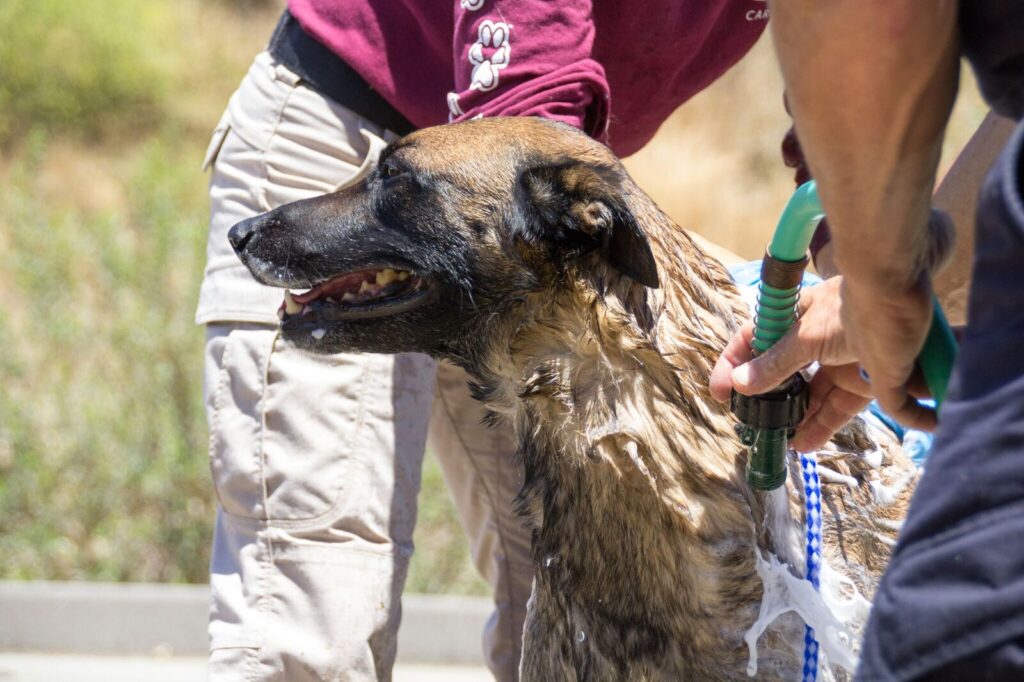
Canine Decontamination
Working canines are commonly deployed into dangerous situations where risk of exposure to contaminating materials is likely. The Perry lab is leading efforts to identify methods for effective decontamination, and better understand the impacts to the canine dermal barrier as a result of decontamination practices. Proper decontamination is critical to safeguard the health of our heroic canine partners and to prevent cross-contamination to the humans who work with them.
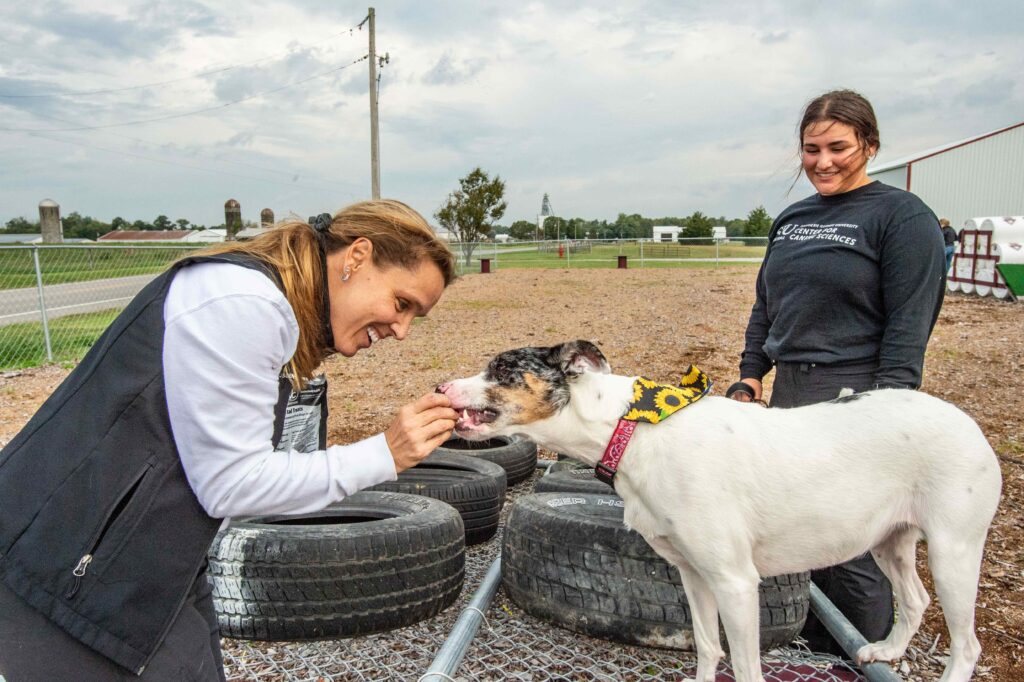
Fecal Changes Due to Diet Changes in Canine
Rapid dietary switch is frequently associated with gastrointestinal changes in the canine. Unfortunately, despite the frequency with this this occurs, characterization of the GI impact is not well represented in the veterinary literature. Dr. Perry’s team is investigating the changes in fecal consistency and microbial disruption that occurs in the gastrointestinal tract when dogs are rapidly changed from one diet to another with no transition time. The outcomes of this work will help to develop better veterinary regimens for transitioning to medical diets or help to develop procedures for supplementation when transitioning is not possible.
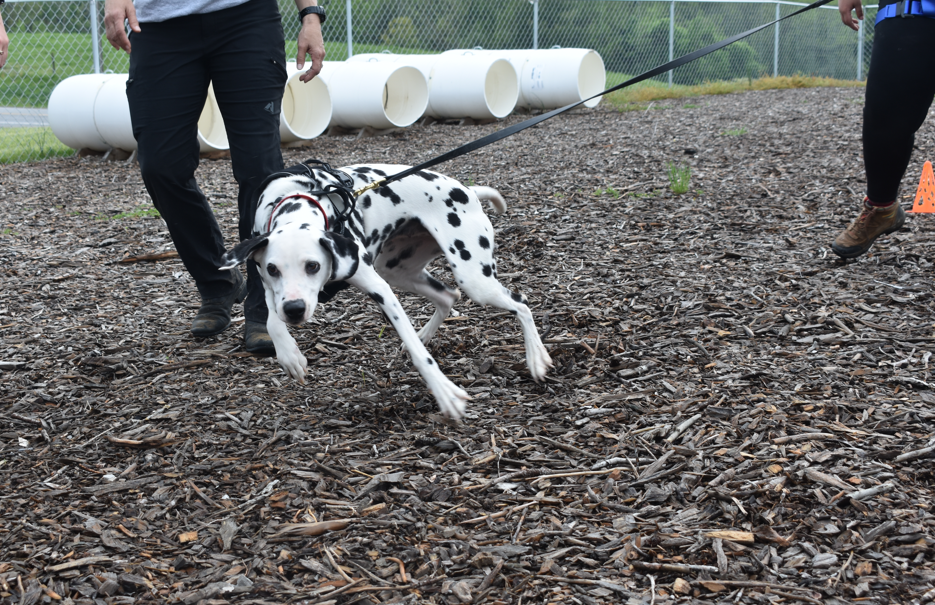
Collar Tension Research
Injury to the canine neck is a frequent occurrence as a result of poor leash-walking skills or excessive pulling by excited dogs. Many dogs pull as a result of common environmental stimuli (new dogs, balls thrown in the park, etc) and the force that is applied to their neck as a result of this behavior hasn’t been well documented. Josh Bailey, Dr. Perry’s graduate student, is investigating the peak force, and time under tension for dogs exposed to common environmental stimuli. These data may help to better in form owners of the risk of injury to their dogs when pulling behavior is allowed to continue without correction.
